Introduction
Camping in the cold requires strategic planning to combat freezing temperatures. One crucial element is staying warm inside your tent. This comprehensive guide explores the challenges of cold-weather camping and introduces the lifesaver – the tent heater.
Why Staying Warm is Vital
Body Temperature and Safety
Ensuring your body stays warm is more than just comfort; it’s about preventing life-threatening conditions like hypothermia and frostbite.
The Trio of Challenges

- Low Temperatures: Combat freezing temperatures to avoid hypothermia.
- Wind Chill: Minimize wind chill inside by windproofing your tent.
- Moisture Management: Control condensation to prevent feeling colder inside.
Enter the Tent Heater: Your Winter Camping Companion
Importance of Staying Warm in the Tent
- Safety: Guard against hypothermia, frostbite, and cold-related illnesses.
- Comfort: Enhance overall comfort for a better camping experience.
How a Tent Heater Makes a Difference
- Warmth on Demand: Efficient, targeted heat without layers of blankets.
- Improved Sleep: Cozy comfort translates to restful sleep.
- Safety First: Maintains a safe temperature range, crucial for all ages.
- Convenience and Comfort: Easy to use, fuel-efficient, and keeps your camp environment clean.
Types of Heaters for Tent Camping
Understanding the variety of camping heaters available for your winter escapades.
- Combustion Heaters: Powered by fuels like propane, butane gas, diesel, or petrol.
- Electric Heaters: Draw power from batteries or portable generators.
- Wood-Burning Stoves: Ideal for extended off-grid heating.
BTUs and Their Significance
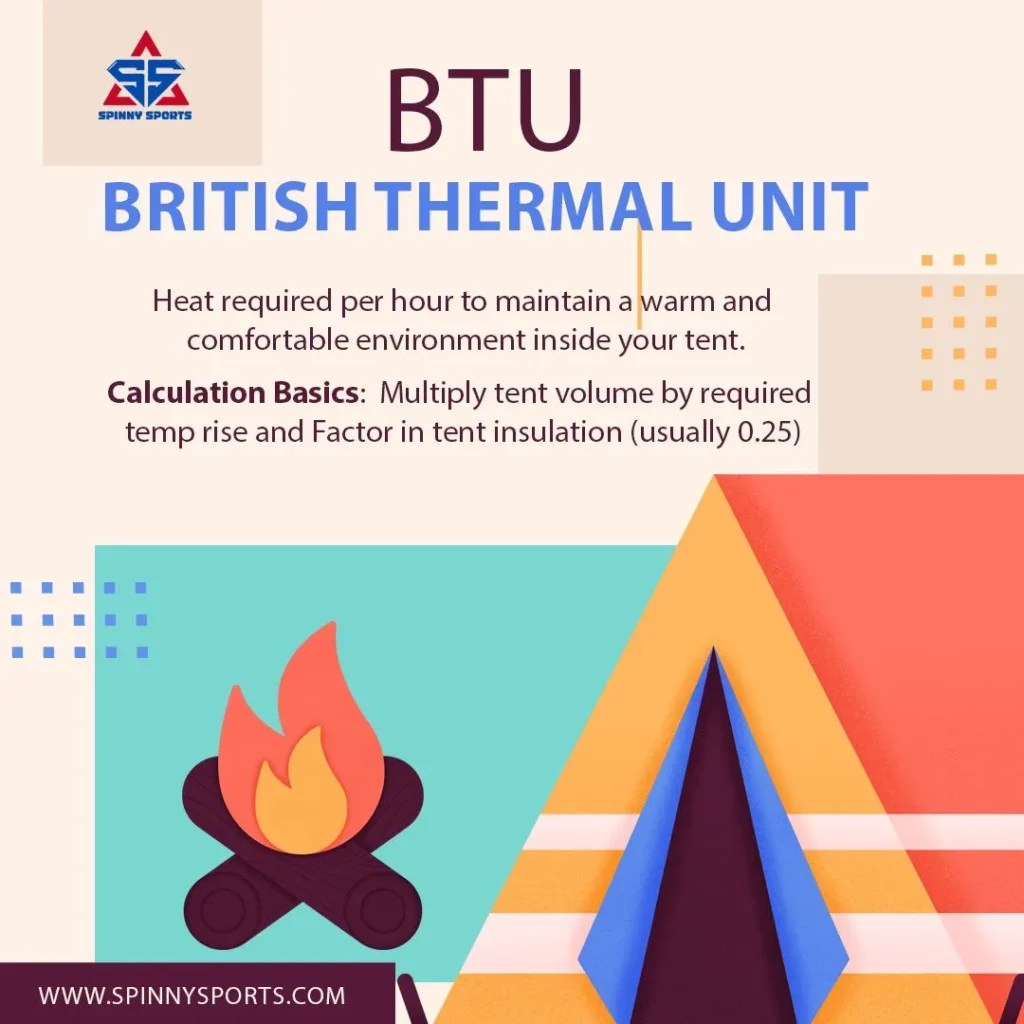
BTU, or British Thermal Unit, measures the heat required per hour to maintain a warm and comfortable environment inside your tent. The calculation of BTUs involves multiplying the cubic volume of your tent or RV by the necessary temperature rise and the insulation factor specific to the tent. Typically, the insulation factor is approximately 0.25, assuming your tent is appropriate for the prevailing weather conditions during camping. It’s crucial to note that using a lightweight summer festival tent for winter camping is not advisable, as it may lack the insulation needed to provide sufficient warmth in colder temperatures.
Here are our Top 5 best tent heaters for winter camping
1. Mr. Heater Indoor-Safe Portable Propane Radiant Heater
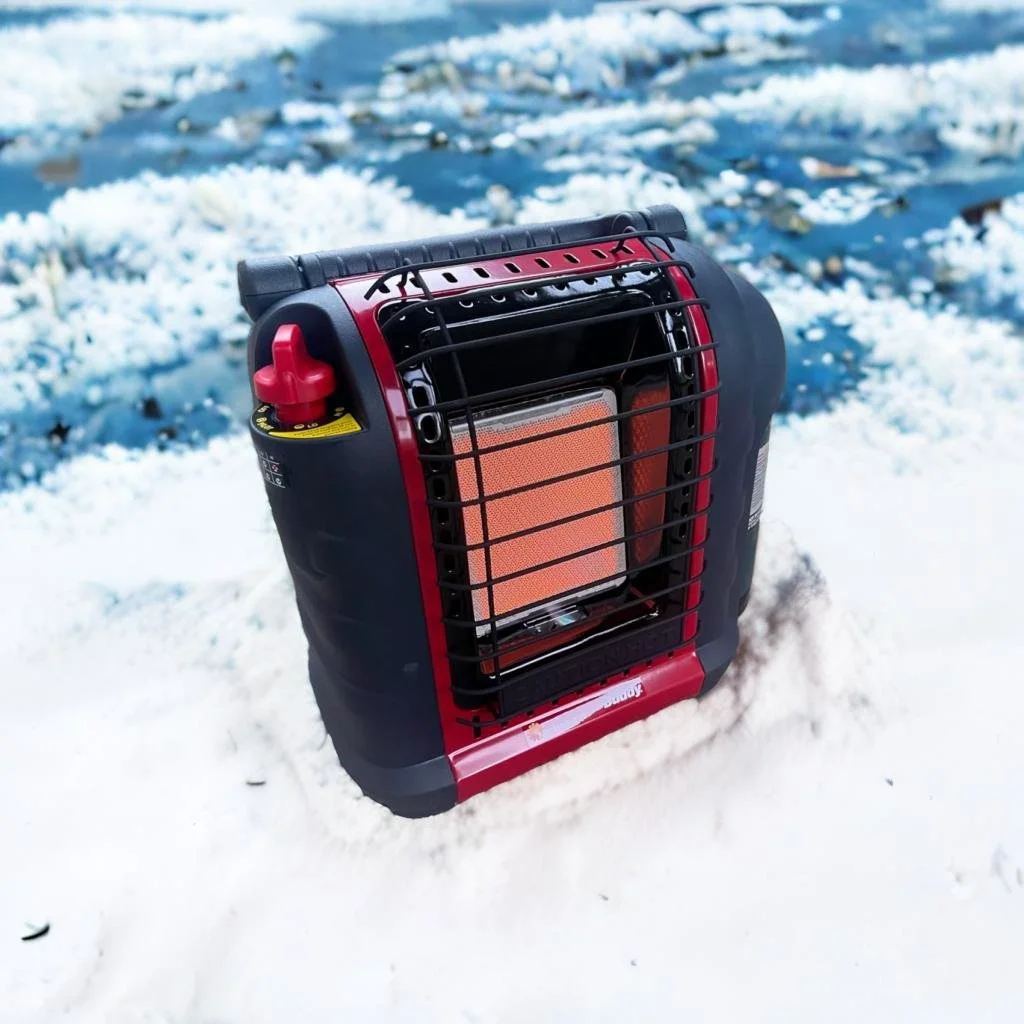

Your Compact Propane Heating Solution
- Perfect for spaces up to 225 sq. ft.
- User-friendly features for efficient heating.
- Safety measures include automatic shut-off and oxygen depletion sensor.
Pros:
- Versatile for indoor or outdoor use.
- Efficient heating with 4,000 to 9,000 BTUs.
- Compact design with a fold-down handle.
Cons:
- Limited heating coverage for larger rooms.
- Hose for connecting to a larger tank not included.
Verdict: A reliable choice for portable, efficient heating in various scenarios.
Buy Now2. Campy Gear Chubby 2 in 1 Portable Propane Heater & Stove
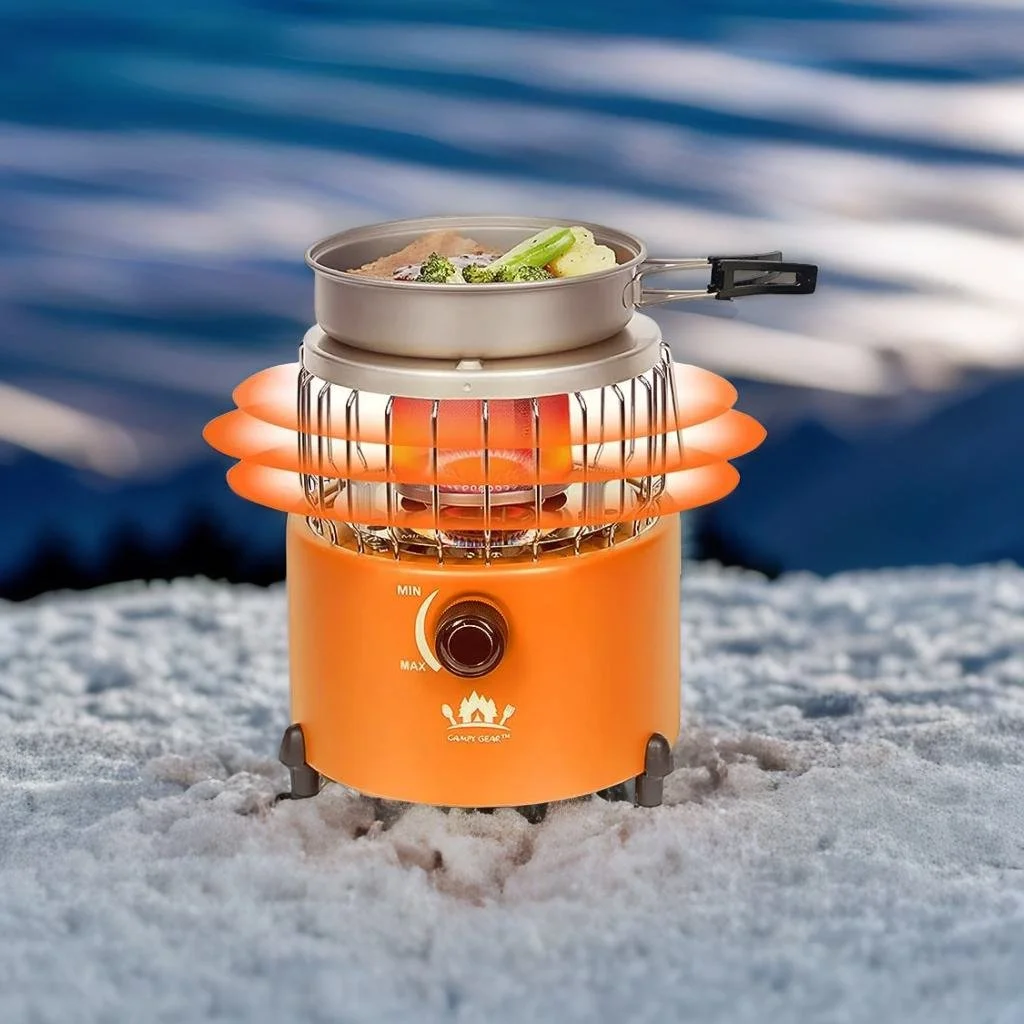

Your Versatile Outdoor Companion
- 2-in-1 heater and stove with 18,000 BTU output.
- Safety features include tip-over switch and oxygen depletion sensor.
- Compatible with various fuel canisters for flexibility.
Pros:
- Fast heating with a 360° radiant design.
- Adjustable flame for various cooking purposes.
- Portable and backed by a 1-year warranty.
Cons:
- Heat shield design criticized for hot handling.
- Limited stovetop size for large pots.
Verdict: A functional and versatile choice for outdoor heating and cooking.
Buy Now3. Sengoku HeatMate Portable Convection Heater
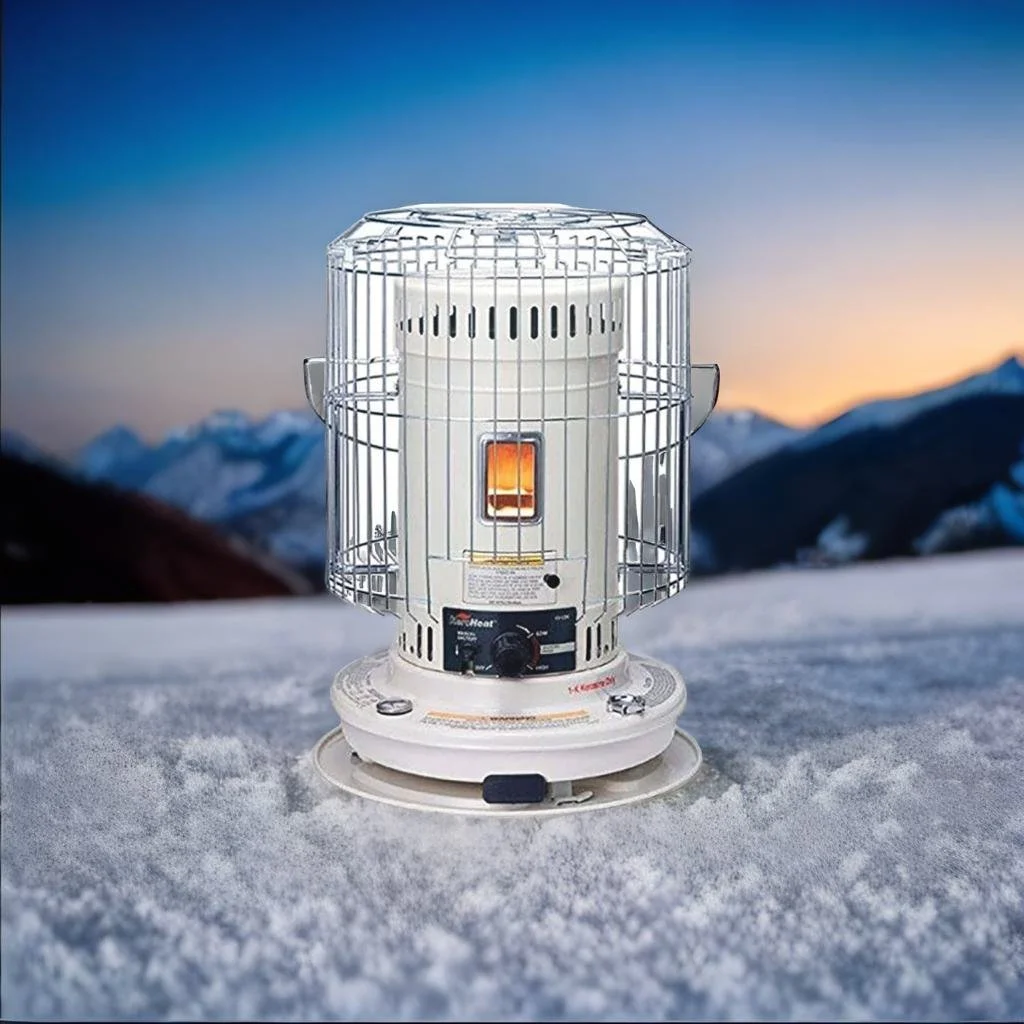

Your Indoor and Outdoor Solution
- Powerful 23,000 BTU space heater for up to 1,000 sq. ft.
- Safety features include automatic shut-off and tip-over switch.
- Ideal for emergency heat and hard-to-heat spaces.
Pros:
- Impressive heating for large spaces.
- Fuel-efficient for longer runtimes.
- Multiple safety features for worry-free use.
Cons:
- Relies on kerosene, requiring careful handling.
- Regular cleaning and maintenance needed.
Verdict: A powerful and portable solution for both indoor and outdoor heating.
Buy Now4. Mr. Heater Little Buddy Propane Heater
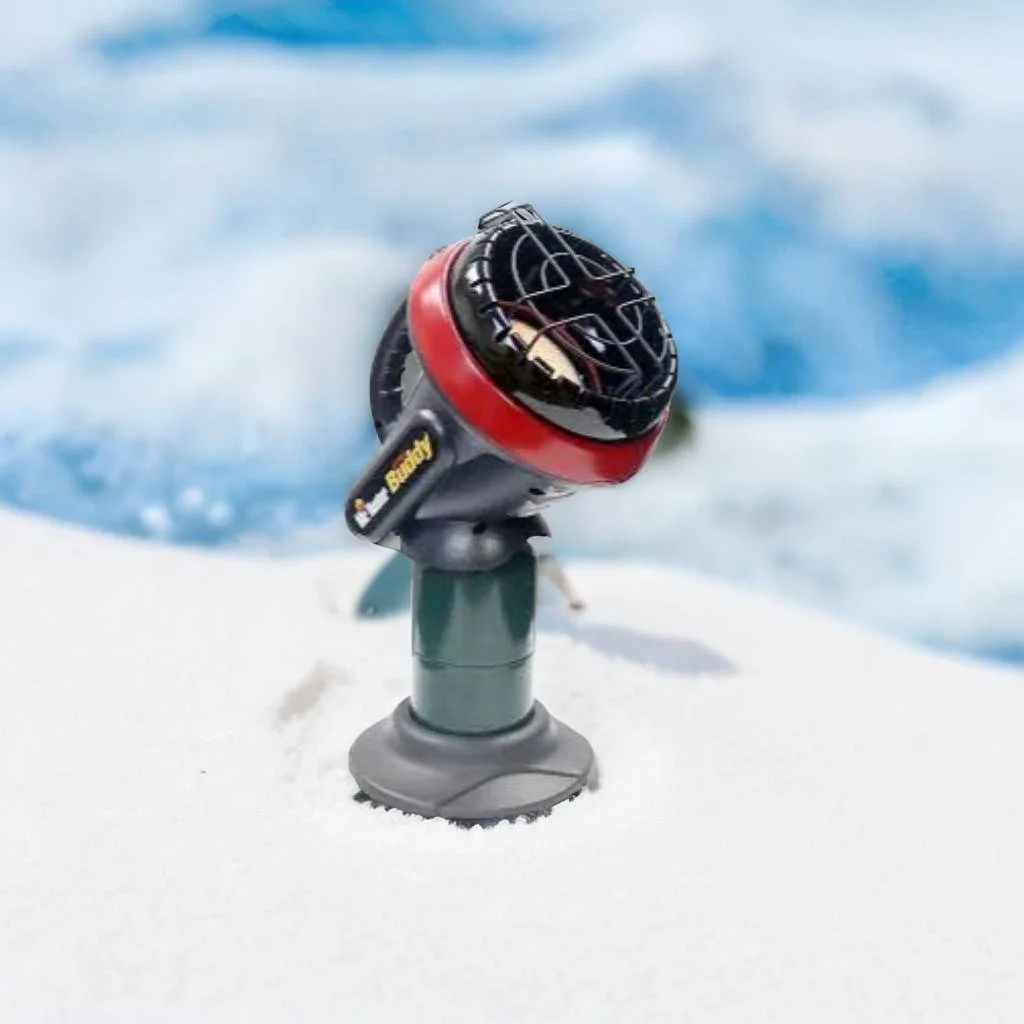

Your Compact and Portable Heating Solution
- Indoor-safe portable propane heater for up to 95 sq. ft.
- Simple on/off buttons for easy operation.
- Safety features include low-oxygen shut-off and tip-over protection.
Pros:
- Affordable and lightweight.
- Decent heating for small to medium-sized spaces.
- Compatible with both small and larger propane tanks.
Cons:
- Limited heating power for larger tents.
- No temperature control settings.
Verdict: An affordable and portable option for personal heating in smaller spaces.
Buy Now5. Stansport Portable Outdoor Propane Radiant Heater


Your Personal Outdoor Heater
- 4,000 BTU output with four heat settings.
- Metal dish for focused heat and front cage for safety.
- Portable with a convenient carry handle.
Pros:
- Budget-friendly with decent heating.
- Simple and portable design.
- Quieter operation compared to some.
Cons:
- Limited heating power for larger tents.
- Basic design with fewer safety features.
Verdict: A cost-effective and straightforward choice for personal heating during outdoor adventures.
Buy NowWhat type of heater is safe for a tent?
Heaters designed for indoor use typically utilize electricity, propane, or butane. Heaters are safe for tent if they incorporate an automatic shut-off mechanism in case of tipping. Additionally, numerous portable heaters are equipped with oxygen sensors; if the sensor detects a significantly low oxygen level, it triggers an automatic shutdown of the heater.
How do you heat a tent all night?
By using a good quality heater with all safety mechanism like Automatic shut off on tipping, oxygen sensors, etc
How do you calculate BTU requirements?
BTU’s of Heat needed/hour = Cubic Volume of Tent × Temperature Rise Required × .25 (Insulation Factor of a Tent)
Conclusion
Embrace the winter wonderland with the right tent heater. Each option caters to different needs, ensuring a warm and enjoyable camping experience. Choose wisely, stay warm, stay safe, and savor the adventure!
For More Sports Updates visit Spinny Sports
Click Following link for detailed review.